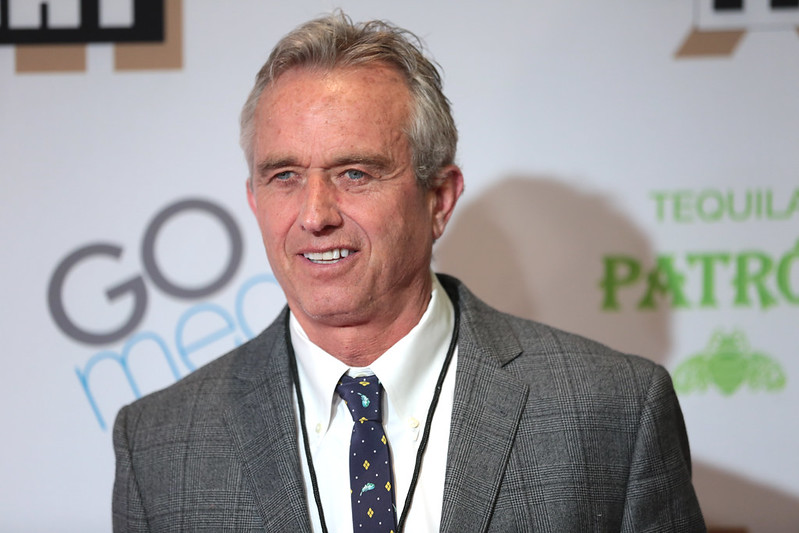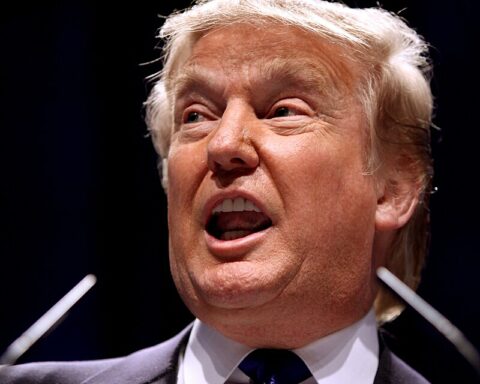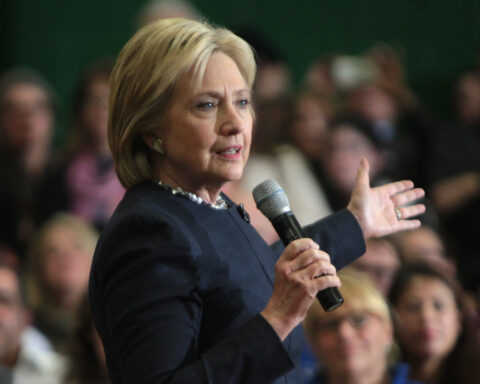On Monday, a judge blocked Robert F. Kennedy Jr.’s bid to be on New York’s ballot for the general election.
New York Supreme Court Justice Christina Ryba ruled against Kennedy’s nomination, instructing the Board of Elections to omit his name from the official ballot.
The lawsuit was initiated by Clear Choice Action, a group with Democratic interests, challenging the New York address where Kennedy claimed to live on his ballot access petition forms.
Although Kennedy and his wife, Curb Your Enthusiasm star Cheryl Hines, live in California with their family, he testified that they’ve always planned to move back to New York.
“The fact that Kennedy considers himself to be a ‘New Yorker’, has fond memories of the years he lived in the Town of Bedford and longs to return there someday, is utterly irrelevant to the issue of whether he resided in the spare bedroom of the 84 Croton Lake Road address during May of 2024 when he circulated and filed the nominating petition,” Ryba’s ruling read.
The judge pointed out that photos of the residence, which were submitted as evidence, suggested that Kennedy’s claimed residence might not be genuine.
“Given the size and appearance of the spare bedroom as shown in the photographs admitted into evidence, the Court finds Kennedy’s testimony that he may return to that bedroom to reside with his wife, family members, multiple pets, and all of his personal belongings to be highly improbable, if not preposterous,” she wrote.
Kennedy’s declared address is a single room rental at a friend’s house in Katonah, New York. During the trial, he revealed that he had only slept there once since moving in because of his extensive campaigning schedule.
The judge accused Kennedy of having a “long-standing pattern” of utilizing friends’ addresses to keep his New York voter registration while actually living in California.
“Using a friend’s address for political and voting purposes, while barely stepping foot on the premises, does not equate to residency under the Election Law,” Ryba wrote.
“To hold otherwise would establish a dangerous precedent and open the door to the fraud and political mischief that the Election Law residency rules were designed to prevent.”
Clear Choice Action, stated that “today’s ruling makes clear that Mr. Kennedy lied about his residency and provided a false address on his filing papers and candidate petitions in New York, intentionally misleading election officials and betraying voters’ trust.”
The Democratic National Committee also commented, describing Kennedy as a “deeply troubled, reckless, and dangerous man.”
Kennedy’s campaign expressed their dissatisfaction with the judge’s ruling and confirmed that they would appeal.
“The Democrats are showing contempt for democracy,” Kennedy said in response. “They aren’t confident they can win at the ballot box, so they are trying to stop voters from having a choice. We will appeal and we will win.”
“This case is an assault on New York voters who signed in record numbers to place me on their ballot,” he added. “The DNC has become a party that uses lawfare in place of the democratic election process.”
The ruling is bad news for his campaign, as it can trigger similar challenges across other states where Kennedy used a New York address to file for candidacy.
Despite the ruling, the campaign received good news the same day, when Kennedy’s eligibility was upheld in North Carolina, after an appeal was filed by the state’s Democratic Party.
The North Carolina State Board of Elections had previously ruled that Kennedy’s party, the We the People Party, qualified for the state’s ballot, which Clear Choice Action disagreed with and filed a lawsuit.
The state Democratic Party argued that the 4-1 vote approving ballot access was a violation of due process and that Kennedy’s party was established solely to circumvent stricter qualification rules for individual candidates.
The We the People Party needed to gather 13,000 signatures to gain ballot access, whereas Kennedy as an independent candidate would have required over 80,000 signatures on his own, Clear Choice Action contended.
However, lawyers for We the People argued that state law only necessitates a new political party to have a purpose, even if it’s solely to get a candidate on the presidential ballot.
Wake County Superior Court Judge Keith Gregory rejected the appeal, commenting, “You simply asked this court to look at the law, and you said the state board didn’t violate it. I agree.”






